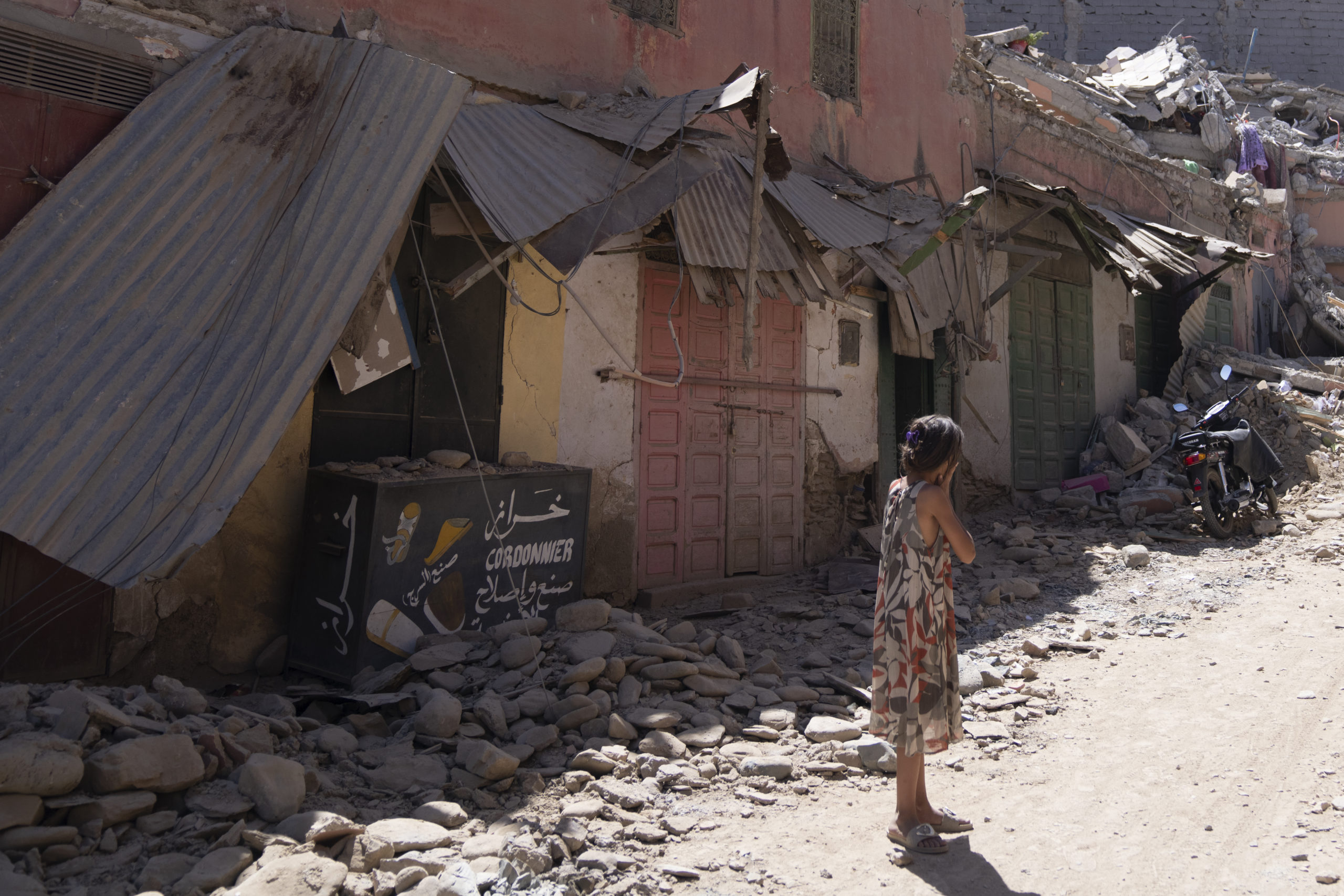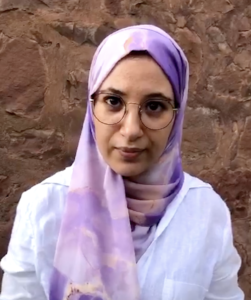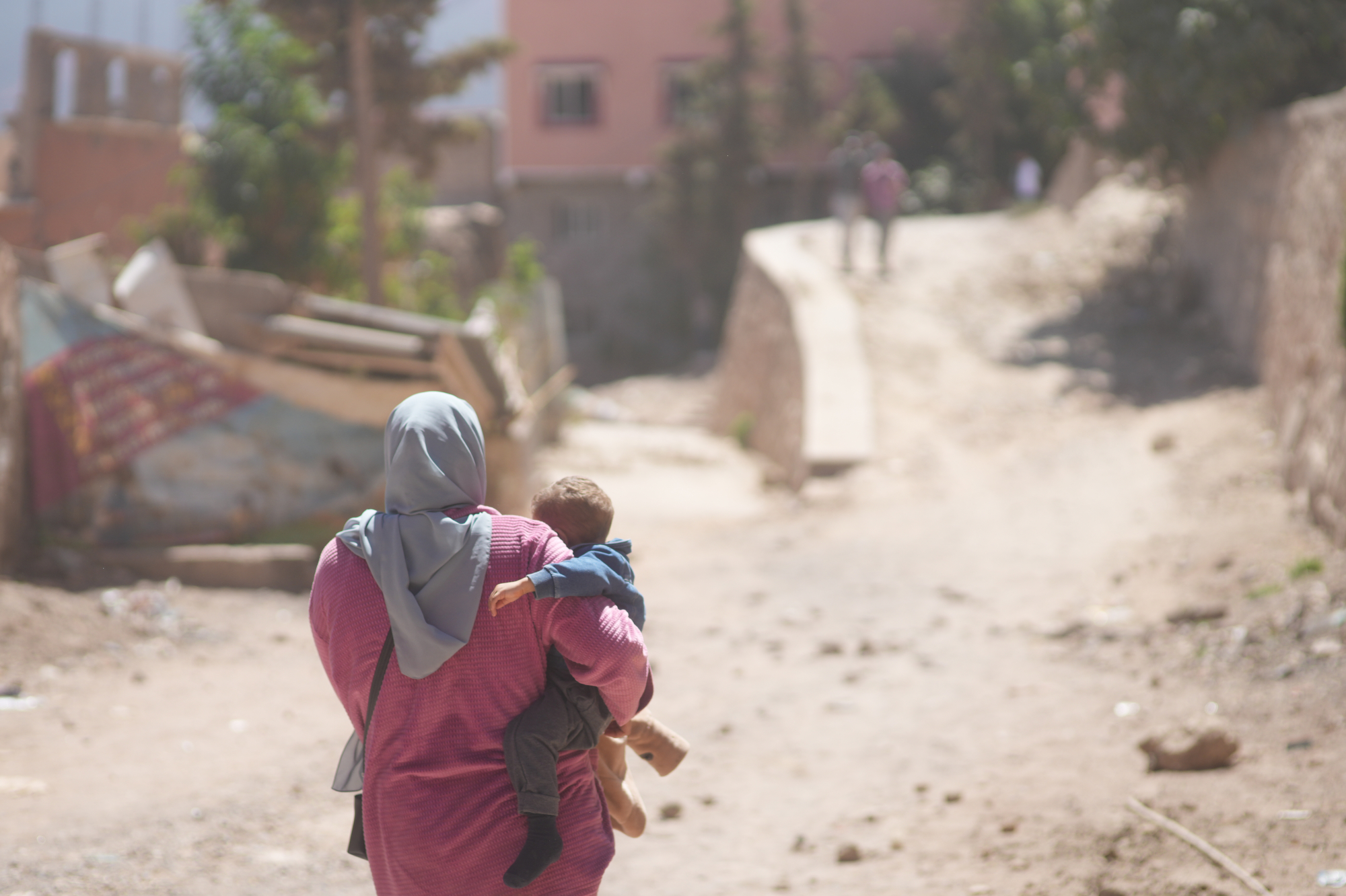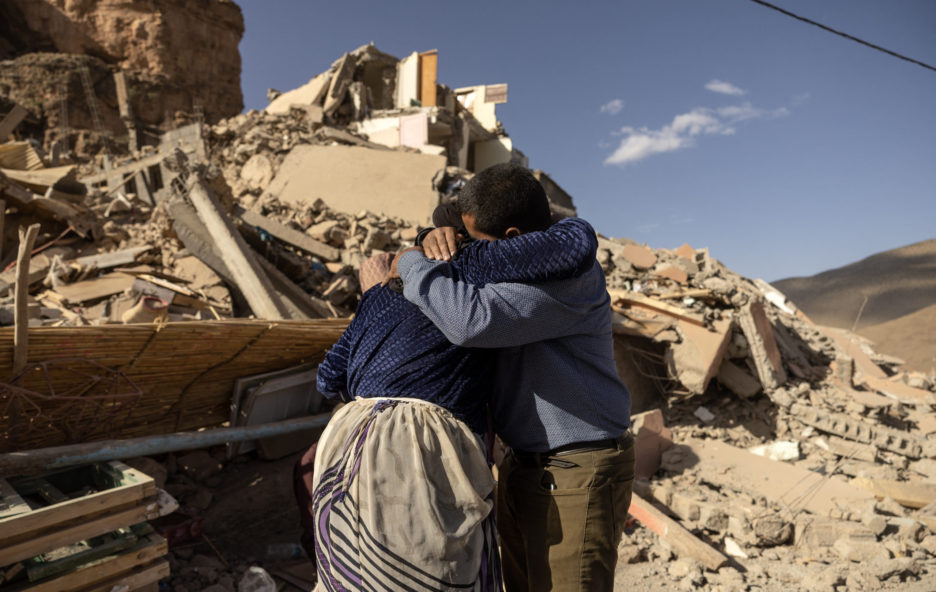After the devastating earthquake that hit Morocco, the SOS Children’s Villages teams locally are pursuing distribution operations to bring clothing, blankets, medicines, hygiene kits and food kits to the disaster victims.
“Access to the villages and people affected is still difficult. Sometimes it takes more than 3 hours to get there. However, every day, our teams go to a different village to distribute aid. It is a way for us to support as many people as possible. Sometimes we return to a village for a second distribution when we see that the need is greater,” says Samya El Mousti, National Director of SOS Children’s Villages in Morocco.
As far as the programmes are concerned, the SOS Children’s Village of Aït-Ourir is preparing to welcome disaster-stricken children and families after the National Association has received authorisation from the authorities. Two houses, each with a capacity of 12 people, and tents for up to 30 people have been prepared and equipped in anticipation of this arrival. Based partly on voluntary participation, SOS Children’s Villages in Morocco is awaiting the list of people identified by the authorities.

We asked the psychologist of the Children’s Village, Meryem Abou Hafs, how she prepares for the arrival of the traumatised children and families who are now coming to SOS Children’s Villages for support.
These children have lost a lot – their parents, their home, everything. What can you say to these children? 
The children mourn the loss of their parents, the loss of a routine, the loss of a life they knew. And now everything will be new for them. For children who are grieving at this moment, it is a must and a need to express their feelings, but not in a direct way. We can work with stories or drawings. For example, we can tell the story of a child who experienced the same earthquake. Through this medium, the child will try to process and understand the whole experience from a different angle and will realise, “Oh, I can identify with this story and the hero or heroine of this story.” The important thing is that the child does not feel: “I am a victim. I’m passive.” Instead, we should try to find a way that makes the children feel that we can do something about this situation.
What emotions and behaviours can we expect from these traumatised children who come to SOS Children’s Villages?
In the case of children who have experienced such a traumatic and stressful event, we can assume that a group of them will be very emotional. This means that they will cry a lot, scream a lot, be overexcited, and show similar symptoms. It may also be that the children feel numb. This means that it will be hard for them to express feelings or even feel feelings, because after the trauma they will only function and feel nothing. We will also have children who become aggressive and use swear words. In other children, on the other hand, we will observe that they become anxious or depressed. Instead of scolding or being aggressive, these kids don’t talk at all. They don’t react and you can’t see their feelings from the outside. So we expect a spectrum of emotions and a spectrum of symptoms.
What do you think needs to happen to support these children, especially in the early days?
First of all, they need a sense of community, a feeling that they are here in a village of children. I think this will help them a lot. In addition, we will not only host one child, but a group of children who have had the same experience, which is the loss of one or both parents. In this way, they can also experience: “I am not alone. There are other people with whom I share this traumatic experience.” This will be a challenge for them.


